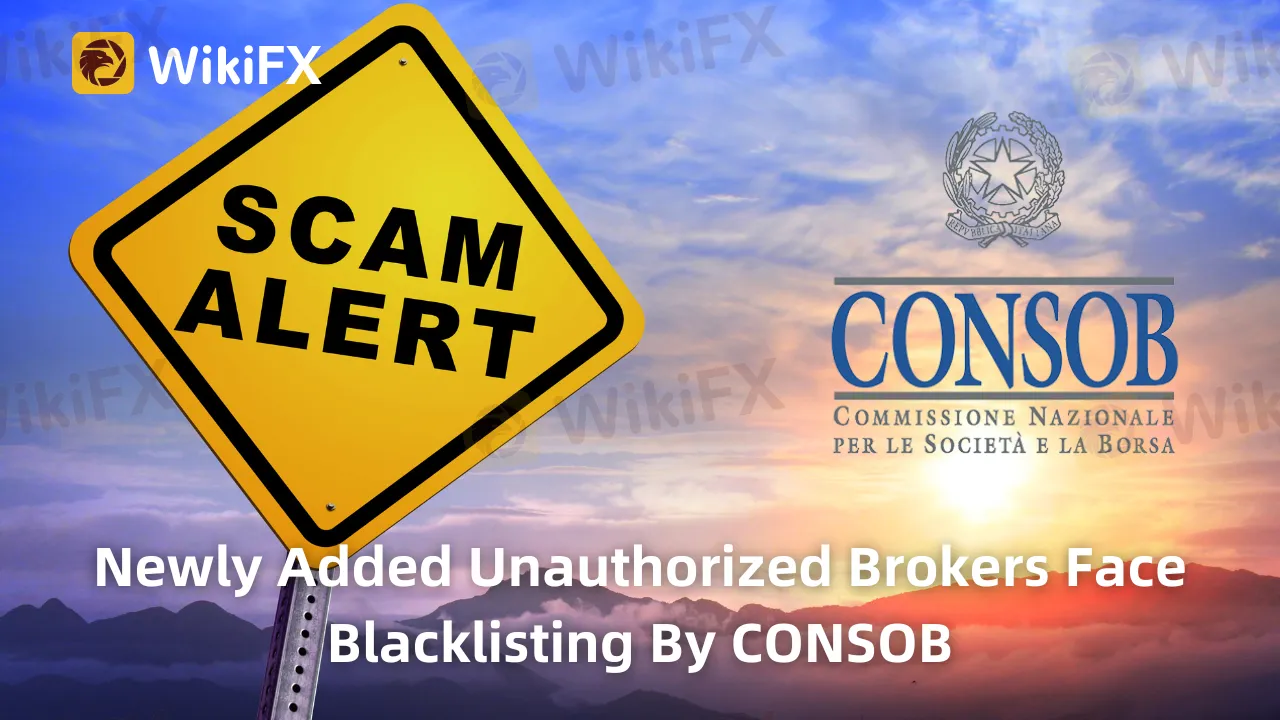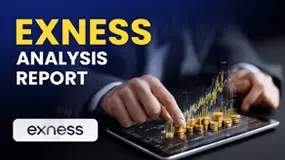Abstract:CONSOB, Italy's financial regulator, actively blacklists unauthorized brokers to protect investors and maintain market integrity. With the rise of online trading, unauthorized brokers pose significant risks, including investment loss and identity theft. Investors must verify broker authorization and report suspicious entities to minimize financial fraud.

The Italian financial regulator, Commissione Nazionale per le Società e la Borsa (CONSOB), continues its vigilance in protecting Italian investors from unauthorized brokers. In recent years, the agency has ramped up its efforts to blacklist brokers operating without proper authorization in the country, demonstrating its commitment to ensuring a safe and transparent financial market. In this article, we delve into the latest actions taken by CONSOB, its regulatory powers, and the risks associated with dealing with unauthorized brokers. Furthermore, we present a section dedicated to the most recent additions to the blacklist, warning potential investors of these illicit entities.
Section 1: CONSOB's Regulatory Role and Powers
Established in 1974, CONSOB is the primary regulatory body responsible for supervising and regulating Italy's financial markets. Its mandate includes the oversight of the Italian Stock Exchange, securities intermediaries, and investment firms. Among its various roles, CONSOB ensures transparency in the financial markets, safeguards investor interests, and works toward the prevention of financial fraud.
To achieve these objectives, CONSOB is granted the power to investigate and take necessary actions against unauthorized brokers. This includes issuing warnings, blacklisting entities, and imposing sanctions when necessary. The regulator continuously updates its list of unauthorized brokers, making it accessible to the public to inform potential investors and protect them from fraudulent practices.
Section 2: The Rising Threat of Unauthorized Brokers
The rapid growth of online trading and investing has led to an increase in unauthorized brokers entering the market. These entities operate without proper licenses, often engaging in fraudulent activities such as price manipulation, misappropriation of funds, and false advertising. In many cases, investors who fall victim to unauthorized brokers are left with little to no recourse, as these companies are often based offshore and challenging to track down.
To mitigate the risk of financial fraud, CONSOB actively monitors the market for unauthorized brokers and takes swift action to remove them from the Italian financial landscape. The blacklisting process involves thorough investigation and analysis of the broker's operations, as well as collaboration with other international regulatory bodies.
Section 3: Risks Associated with Unauthorized Brokers
Dealing with unauthorized brokers exposes investors to several risks, including:
Loss of Investment: Unauthorized brokers may manipulate the trading platform or provide misleading information, leading to significant financial losses for the investor.
Identity Theft: These brokers may require investors to provide personal and financial information, which can be used for identity theft or other fraudulent activities.
Limited Legal Recourse: Investors who fall victim to unauthorized brokers often face difficulty in recovering their funds, as these entities are difficult to locate and may be based in jurisdictions with weak regulatory oversight.
No Regulatory Protection: Unlike authorized brokers, unauthorized entities are not subject to regulatory requirements, such as maintaining segregated accounts, providing accurate financial reporting, or adhering to capital adequacy requirements.
To avoid these risks, investors are advised to verify the broker's authorization status and ensure they are dealing with a reputable, regulated entity.
Section 4: The Latest Additions to CONSOB's Blacklist
Btc Capital Group

EuropeMarket

The above list contains the most recent additions to CONSOB's blacklist, warning investors about the unauthorized brokers operating within Italy. CONSOB urges investors to be cautious and always verify the authorization status of a broker before entering into any financial agreement.
In issuing the orders, the Authority made use of the powers deriving from the “Decreto crescita” (“Growth Decree”; Law no. 58 of 28 June 2019, Article no. 36, paragraph 2-tendencies), on the basis of which Consob can order Internet service providers to block access from Italy to websites offering financial services without the proper authorization.
The number of websites blacked out since July 2019, when Consob got the power to order the blocking of access to the websites of fraudulent financial intermediaries, has thus risen to 886
Section 5: Steps to Take When Encountering an Unauthorized Broker
If you suspect that you have encountered an unauthorized broker, follow these steps to protect yourself and report the entity:
Verify the Broker's Authorization: Check CONSOB's official website to confirm whether the broker is authorized to operate in Italy.
Gather Evidence: Document all communications, transactions, and other relevant information related to your dealings with the suspected unauthorized broker. This evidence can be crucial in supporting your claim and assisting regulatory authorities in their investigation.
Cease All Contact: Discontinue any further interaction with the suspected unauthorized broker to minimize potential risks and losses.
Report to CONSOB: Contact CONSOB to report your suspicions and provide them with the evidence you have gathered. This will enable the regulator to investigate the entity, potentially leading to its blacklisting and preventing further harm to other investors.
Seek Legal Advice: Consult with an attorney who specializes in financial fraud to explore your options for recovering any lost funds and pursuing legal action against the unauthorized broker.
Conclusion
CONSOB's ongoing efforts to blacklist unauthorized brokers demonstrate its commitment to protecting Italian investors and maintaining the integrity of the country's financial markets. By staying informed about the latest additions to the blacklist and verifying the authorization status of brokers before investing, individuals can significantly reduce their risk of falling victim to financial fraud.
Investors should remain vigilant and report any suspicious activities to CONSOB to ensure that the regulator can continue its vital work in safeguarding the interests of market participants and fostering a transparent, secure, and reliable financial environment.
Download and install the WikiFX App on your smartphone to stay updated on the latest news.
Download the App here: https://social1.onelink.me/QgET/px2b7i8n












